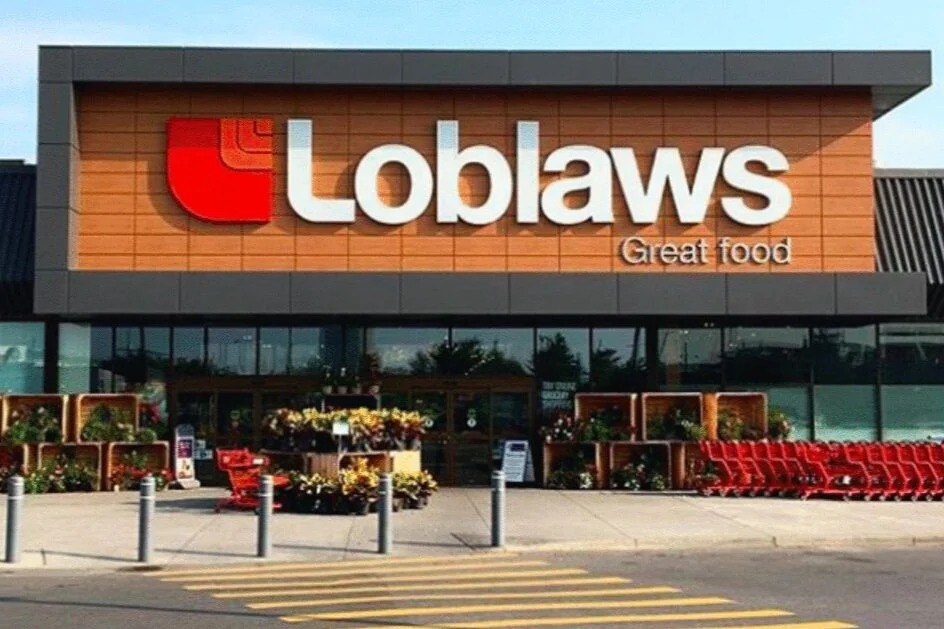Three Things Canadian Brick-and-Mortar Retailers Should Learn from COVID-19
/a thriving ecommerce platform is vital for smbs.
By David Gens, CEO of Merchant Growth
After many weeks of patiently waiting, the majority of Canada is well into Phase 2, meaning many Canadian brick-and-mortar small to medium-sized businesses (SMBs) are reopening. While this may sound exciting for most, this is an extremely crucial time for SMB owners to be looking at their finances, to create a solid plan in order to survive post-pandemic. I am hopeful that Phase 2 will give retailers a chance to get back to work and make up for the loss of profit over the past four months, if they remain agile and follow these three learnings: .
1. E-commerce Capabilities
Brick-and-mortar retailers were impacted heavily by COVID-19, there’s no doubt about it. The pandemic forced these SMBs to shut their doors, and in some cases resulting in a revenue drop to zero, leaving them with a very uncertain future. Although the government has taken action, including emergency loans and rent subsidies, like CEBA or the CECRA for small businesses who are operating at half capacity, more will need to be done as they move into Phase 2. The reality is, and many SMB owners know this, that many people who receive funding from the government will still have to apply for additional funding.
Brick-and-mortar stores are at a disadvantage because many have never needed and often do not have a budget for digital marketing. However, when the pandemic hit, every single business needed to act as if they were an e-commerce store, which resulted in the 126% increase in online sales across Canada in April. COVID-19 has rapidly changed the game for e-commerce sites and unfortunately left brick-and-mortar stores to play catch up by getting creative, and fast.
For the past decade, I’ve run a company called Merchant Growth that has been supporting thousands of SMBs, many of which are brick-and-mortar first companies, through lending them millions of dollars to help them grow. As we slowly enter into new phases of the pandemic, we are still learning the importance of e-commerce capabilities, especially for brick-and-mortar stores, and the role they need to take if they want to keep up with online platforms. E-commerce is challenging brick-and-mortar stores and shifting the way retailers need to think in 2020. COVID-19 has demonstrated how important it is to have an e-commerce strategy, to support the overall health of the business. We’ve seen initiatives like shopHERE, who have helped brick-and-mortar businesses get online and go digital. Throughout the pandemic, we have also prioritized creating an e-commerce lending program to support businesses in pivoting to enter the digital market.
digital marketing will leverage your smb.
2. Always-On Marketing
2020 has also shown us the importance of always communicating with our customers and community, and building those relationships up so businesses have consistent support in the tough times. The pandemic has driven a shift to e-commerce and without a strong digital marketing and communications plan, many brick-and-mortar businesses are missing the opportunity to continue communicating online with their consumers. The past four months have revealed many consumer trends and we know that consumers are more motivated than ever before, to shop online while staying safe from the comfort of their home.
I encourage brick-and-mortar stores to pivot and focus on building a strong online communications strategy and prioritize digital marketing. Some benefits of digital marketing include, creating an ideal market condition for consumers, the ability to quickly test and launch new products and ideas, and to meet all touchpoints of consumer interaction. If SMB owners adopt an “always-on marketing” approach they have the opportunity to rebuild their business at a much faster pace. Moving into Phase 2, if SMB owners can engage with customers digitally and offer their products online and in store, they will be able to target a wider range of consumers and perhaps connect with new customers.
plan ahead to future-proof your smb.
3. Having a Plan
If COVID-19 taught us anything as business owners, it’s taught us to have a crisis plan. Having a plan is crucial to the survival of any business. COVID-19 dramatically impacted the stability of the Canadian economy and specifically the financial futures of SMBs. It’s in this time that we need to lean on our neighbours for support and identify a plan that will set our futures up for financial success.
As business owners, having a plan for a crisis as well as a plan on how to manage a crisis once it’s over is the first step to ensuring your business's success. Throughout COVID-19, 92% of small businesses disclosed they were experiencing negative financial effects and were unprepared for what was to come. In order to avoid an extreme financial crisis, SMB owners will need to take their communications and business plan to the next level, preparing for everything and anything to happen. Right now, if you are a SMB owner who is looking to rebuild your business, start by assessing your businesses financial damage. The first step in recovering from the pandemic is to understand the financial state your business is in and how deeply it was affected. Know there are resources available to support you through this process. Along with government aid, utilize fintech lenders in your community, to help you get back onto your feet and rebuild your business.
As we shift and move into new phases and begin to understand what a post-pandemic world will look like for SMB retailers, I am hopeful that we will have the opportunity to work together as a community to build a brighter and more stable future. Above all, my hope is that brick-and-mortar stores now realize the importance of staying innovative, keeping a pulse on their competition and begin to integrate a digital marketing strategy into their post-pandemic business plan.
David Gens is an award-winning business leader who is passionate about helping Canadian small businesses grow and find the financing they need. David is the Founder and CEO of Merchant Growth, which grew from its humble beginnings in his apartment to offices in both Toronto and Vancouver. He now leads one of Canada's largest online small business finance companies.







![L.L.Bean Continues Canadian Expansion with 1st Toronto Store [Photos]](https://images.squarespace-cdn.com/content/v1/529fc0c0e4b088b079c3fb6d/1603908990197-KDT3UNTEHFBFJF5FJ36N/L.L.Bean_Don_Mills_8.jpg)



![Retail-insider-NRIG-banner-300-x-300-V01-3[2].jpg](https://images.squarespace-cdn.com/content/v1/529fc0c0e4b088b079c3fb6d/1593476525034-QRWBY8JUPUYFUKJD2X9Z/Retail-insider-NRIG-banner-300-x-300-V01-3%5B2%5D.jpg)
![Retail-insider-NRIG-banner-300-x-300-V01-2[2].jpg](https://images.squarespace-cdn.com/content/v1/529fc0c0e4b088b079c3fb6d/1593476491497-W6OZKVGCJATXESC9EZ0O/Retail-insider-NRIG-banner-300-x-300-V01-2%5B2%5D.jpg)
![Retail-insider-NRIG-banner-300-x-300-V01-4[2].jpg](https://images.squarespace-cdn.com/content/v1/529fc0c0e4b088b079c3fb6d/1593476508900-TJG5SNQ294YNOCK6X8OW/Retail-insider-NRIG-banner-300-x-300-V01-4%5B2%5D.jpg)
Other news: Gap closing most mall stores, co-working space replaces Shinola store, Star Bédard rebrands, Nobis gets charitable.